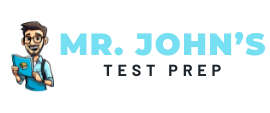Why Your SAT Score Might Dip (and What to Do About It)

Hi families,
This week, instead of our usual student-by-student update, I want to step back and share some important developments in the world of standardized testing and college admissions—and what they might mean for your teen.
🎓 The Bigger Picture: The SAT Is Still (Quietly) Making a Comeback
It’s true: despite the “test-optional” label still floating around, the SAT remains a key part of many college applications and scholarship opportunities.
Top schools like MIT, Dartmouth, and Yale are part of a recent chorus of elite-level universities to announce that they are reinstating testing requirements, citing evidence that standardized scores offer a consistent measure across a wide variety of schools and backgrounds.
We’re also seeing schools continue to use test scores to determine merit aid, or as a benchmark when reviewing students from under-resourced high schools. For students aiming at competitive programs—or simply trying to stand out—test scores remain a powerful lever.
📊 Top 25 U.S. Colleges & Universities – SAT/ACT Policies for 2025 Admissions
| Rank | Institution | Testing Policy for 2025 Admissions | Notes |
|---|---|---|---|
| 1 | Princeton University | Test-Optional | Extended test-optional policy through 2025. |
| 2 | Massachusetts Institute of Technology (MIT) | Test-Required | Reinstated SAT/ACT requirement to identify academic potential across diverse backgrounds. |
| 3 | Harvard University | Test-Required | Reinstated standardized testing requirement starting with the Class of 2029. |
| 4 | Stanford University | Test-Optional | Maintaining test-optional policy for 2025 admissions. |
| 5 | Yale University | Test-Required | Reinstated SAT/ACT requirement to enhance holistic admissions review. |
| 6 | University of Chicago | Test-Optional | Continuing long-standing test-optional policy. |
| 7 | Johns Hopkins University | Test-Optional | Extended test-optional policy through 2025. |
| 8 | University of Pennsylvania | Test-Required | Reinstated SAT/ACT requirement for 2025 admissions. |
| 9 | California Institute of Technology (Caltech) | Test-Required | Reinstated standardized testing requirement for 2025 admissions. |
| 10 | Duke University | Test-Optional | Maintaining test-optional policy for 2025 admissions. |
| 11 | Northwestern University | Test-Optional | Extended test-optional policy through 2025. |
| 12 | Dartmouth College | Test-Required | Reinstated SAT/ACT requirement to identify academic potential across diverse backgrounds. |
| 13 | Brown University | Test-Required | Reinstated standardized testing requirement starting with the Class of 2029. |
| 14 | Vanderbilt University | Test-Optional | Maintaining test-optional policy for 2025 admissions. |
| 15 | Rice University | Test-Optional | Extended test-optional policy through 2025. |
| 16 | Washington University in St. Louis | Test-Optional | Maintaining test-optional policy for 2025 admissions. |
| 17 | Cornell University | Test-Optional | Extended test-optional policy through 2025. |
| 18 | Columbia University | Test-Optional | Maintaining test-optional policy for 2025 admissions. |
| 19 | University of Notre Dame | Test-Optional | Extended test-optional policy through 2025. |
| 20 | University of California, Berkeley | Test-Blind | Will not consider SAT/ACT scores in admissions decisions. |
| 21 | University of California, Los Angeles (UCLA) | Test-Blind | Will not consider SAT/ACT scores in admissions decisions. |
| 22 | Emory University | Test-Optional | Maintaining test-optional policy for 2025 admissions. |
| 23 | University of Michigan–Ann Arbor | Test-Optional | Extended test-optional policy through 2025. |
| 24 | Georgetown University | Test-Required | Maintaining SAT/ACT requirement for admissions. |
| 25 | Carnegie Mellon University | Test-Optional | Extended test-optional policy through 2025. |
📉 Why Scores Drop After Time Off (and Why You Shouldn't Panic)
One of my brightest students reached out this week feeling discouraged. She’d taken the March SAT and done extremely well, then took a well-earned break. But when she jumped back in with a mock test, her score dropped—and she was understandably rattled.
Here’s the truth: this is common.
The SAT isn’t just about content—it’s about timing, intense focus, and pattern recognition. When you take a break, those things fade faster than the grammar rules or math formulas. But that's nothing to fear.
Here are a few ways to recalibrate:
- Start small: ease back in with short drills before full-length tests.
- Review your old process: channel the mindset you had leading up to the last exam and review old problems.
- Rebuild your rhythm: 15–20 minutes of focused practice daily can reset your timing and pacing.
- Stay confident: dips are normal—your progress hasn’t disappeared, it just needs a warm-up.
Like any performance activity, if we win one championship match, we still have to pursue the next one with the same vigor. 💪🏼
🤖 AI + College Admissions: Game Changer or Gimmick?
In the age of ChatGPT and AI-powered everything, students and parents are asking: Can AI help with college admissions?
The short answer is: yes, but with limits.
AI tools can help generate essay drafts, suggest college matches, and even provide personalized SAT practice. Heck, I use it frequently as a time-saver. In fact, at school this week, we're having professional development seminars on the use of AI. We all know it's here to stay and will only become more ubiquitous over time.
How does this affect the college admissions process? Some college consultants are now using AI to identify schools that align with a student’s academic profile, extracurriculars, and financial needs. If they're using it, why can't you do the same?
But here’s the catch: AI doesn’t know your story. And the best college applications are built around authentic, human stories.
Tools like CollegeVine can help students brainstorm and organize ideas. But pairing these tools with a real person—a coach, a tutor, a trusted mentor—may be what turns “good enough” into something truly memorable. For now, anyway....
If your teen is using AI, encourage them to:
- Use it for structure, not substance.
- Bring personal insight to the forefront.
- Treat it like a calculator: useful, but not a replacement for understanding.
☀️ Summer SAT Prep, Math Support, & Referral Discounts
Summer is one of the best times to prep for the SAT without school distractions. If your student is eyeing the June, August, or September test dates, I'm now enrolling students for summer 1:1 and small group sessions.
Also:
- 🤝 Friends & Family Discounts: Refer a friend and save on your next package.
- ➗ Struggling with math? My colleague, an expert SAT Math tutor, is available for 1:1 support in Algebra, Geometry, and more. She's had multiple perfect scorers the past year.
📆 Book a free consultation or reply directly to this email and we’ll find the right fit.
Let’s make this summer strategic, not stressful.
Talk soon,
Mr. John
Your guide to a higher score—and a smoother path to college




